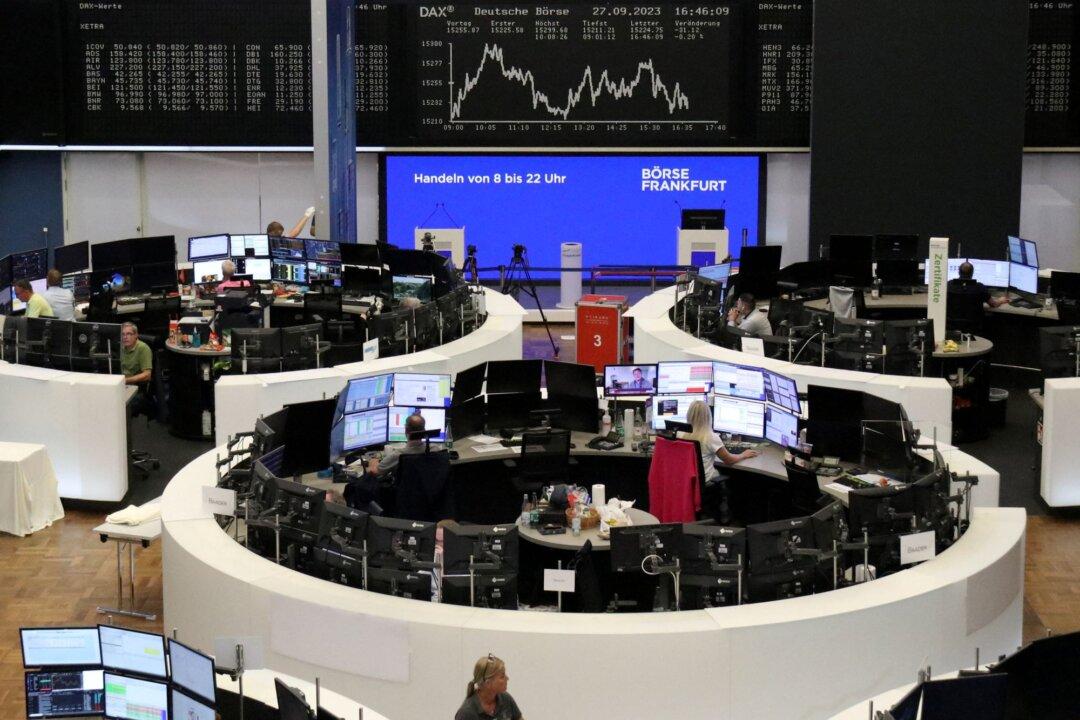LONDON—World stocks held near two-month peaks on Friday, while oil prices were set for a fourth week of declines in a boost for the inflation outlook and government bond markets that are increasingly confident interest rate cuts are coming next year.
The dollar slid 1 percent against the yen and was set for one of its steepest weekly falls against other major currencies this year as market rate expectations shift.





